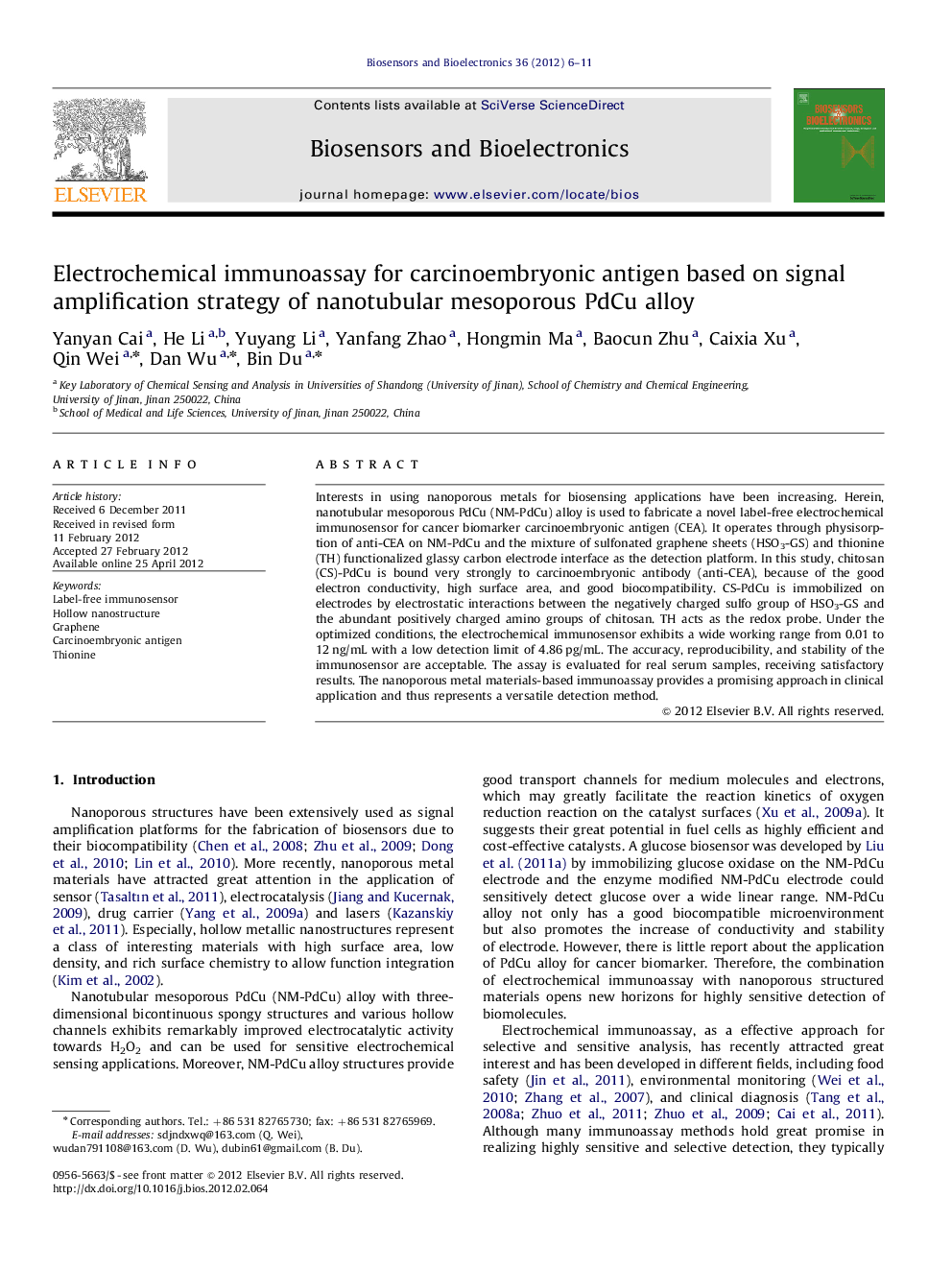| کد مقاله | کد نشریه | سال انتشار | مقاله انگلیسی | نسخه تمام متن |
|---|---|---|---|---|
| 867484 | 909784 | 2012 | 6 صفحه PDF | دانلود رایگان |

Interests in using nanoporous metals for biosensing applications have been increasing. Herein, nanotubular mesoporous PdCu (NM-PdCu) alloy is used to fabricate a novel label-free electrochemical immunosensor for cancer biomarker carcinoembryonic antigen (CEA). It operates through physisorption of anti-CEA on NM-PdCu and the mixture of sulfonated graphene sheets (HSO3-GS) and thionine (TH) functionalized glassy carbon electrode interface as the detection platform. In this study, chitosan (CS)-PdCu is bound very strongly to carcinoembryonic antibody (anti-CEA), because of the good electron conductivity, high surface area, and good biocompatibility. CS-PdCu is immobilized on electrodes by electrostatic interactions between the negatively charged sulfo group of HSO3-GS and the abundant positively charged amino groups of chitosan. TH acts as the redox probe. Under the optimized conditions, the electrochemical immunosensor exhibits a wide working range from 0.01 to 12 ng/mL with a low detection limit of 4.86 pg/mL. The accuracy, reproducibility, and stability of the immunosensor are acceptable. The assay is evaluated for real serum samples, receiving satisfactory results. The nanoporous metal materials-based immunoassay provides a promising approach in clinical application and thus represents a versatile detection method.
► A novel label-free immunosensor was developed for the detection of carcinoembryonic antigen.
► Nanotubular mesoporous PdCu alloy was first used for the biosensor platform.
► PdCu had a good biocompatible microenvironment to capture a large amount of antibodies.
► Functionalized graphene sheets modified electrode promoted the increase of conductivity.
► Simple preparation resulted in excellent stability of the immunosensor.
Journal: Biosensors and Bioelectronics - Volume 36, Issue 1, June–July 2012, Pages 6–11